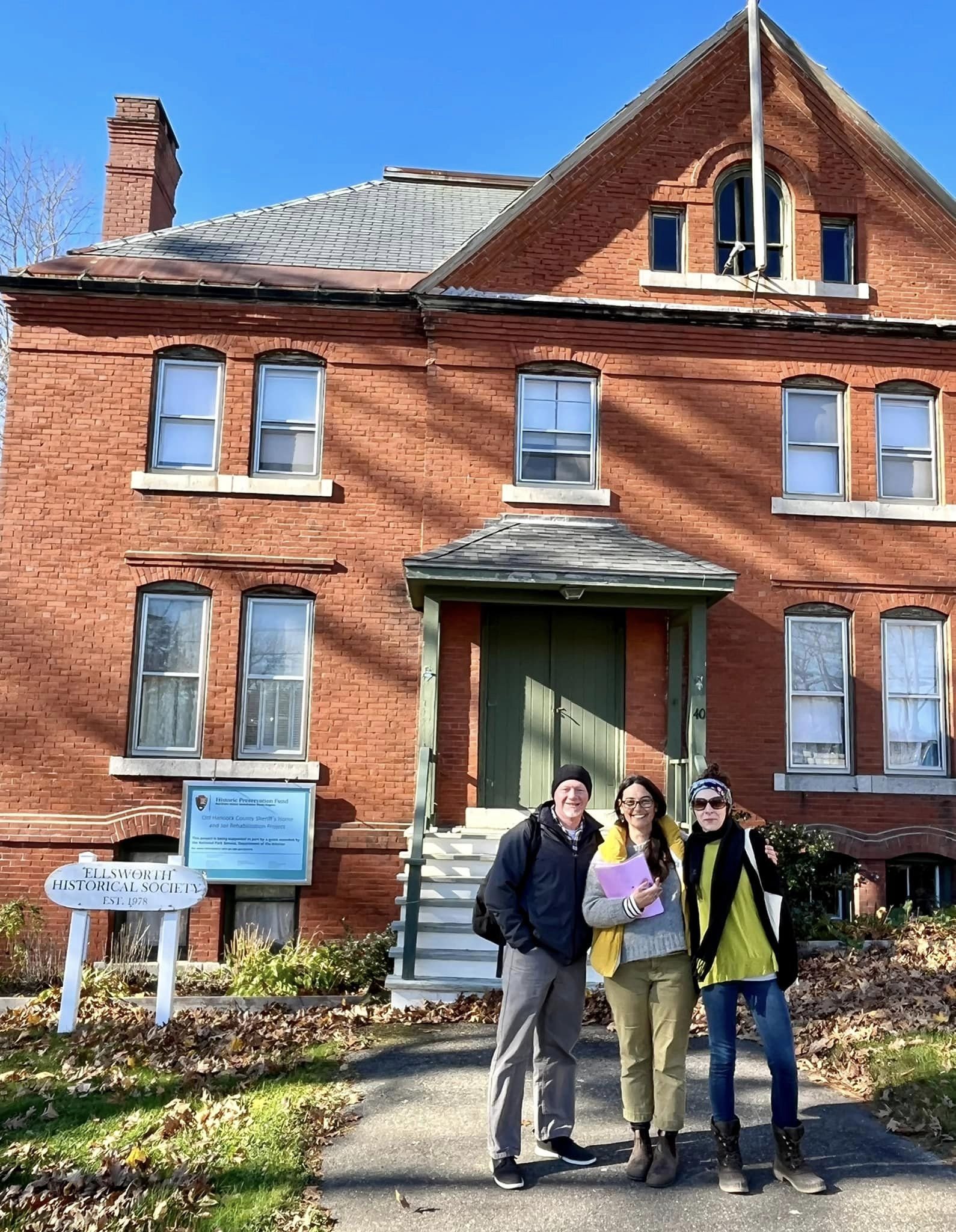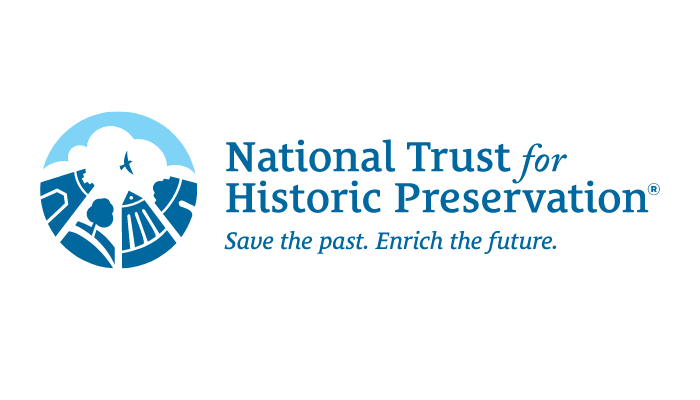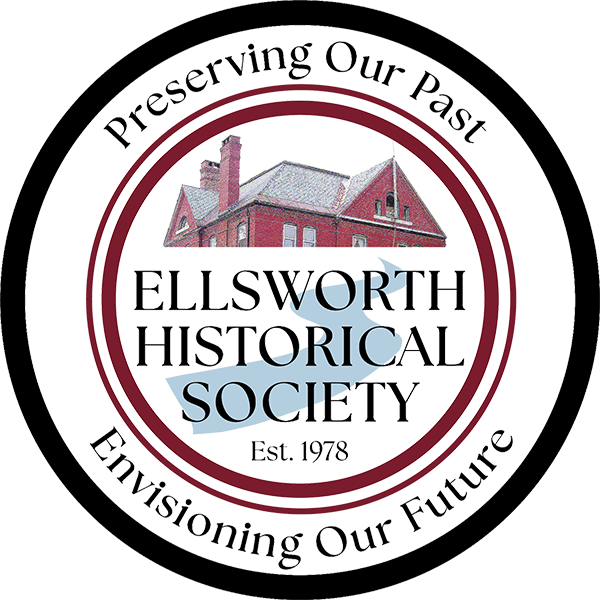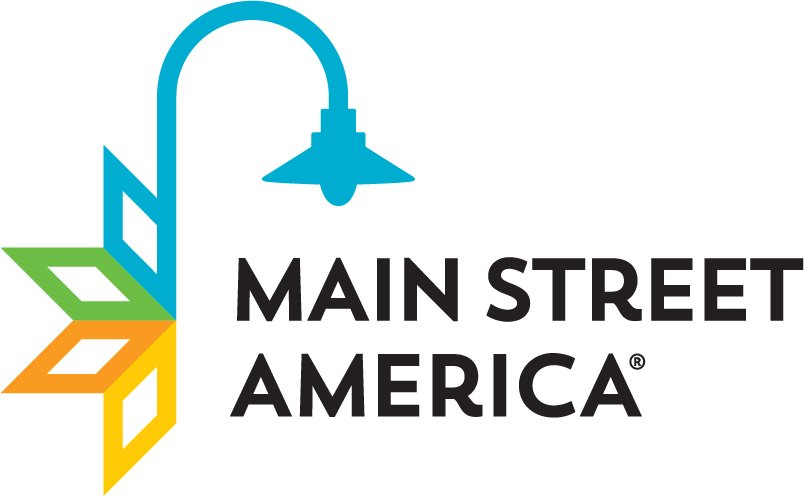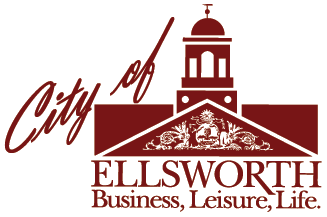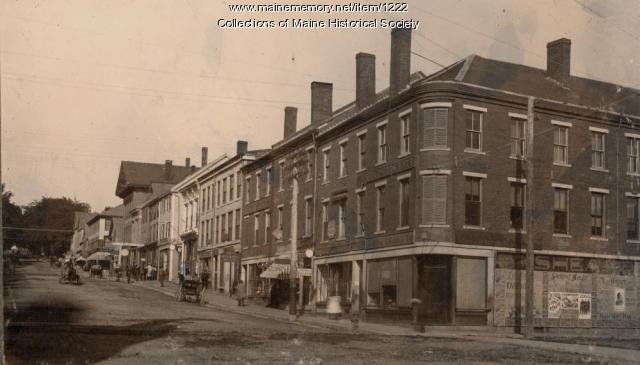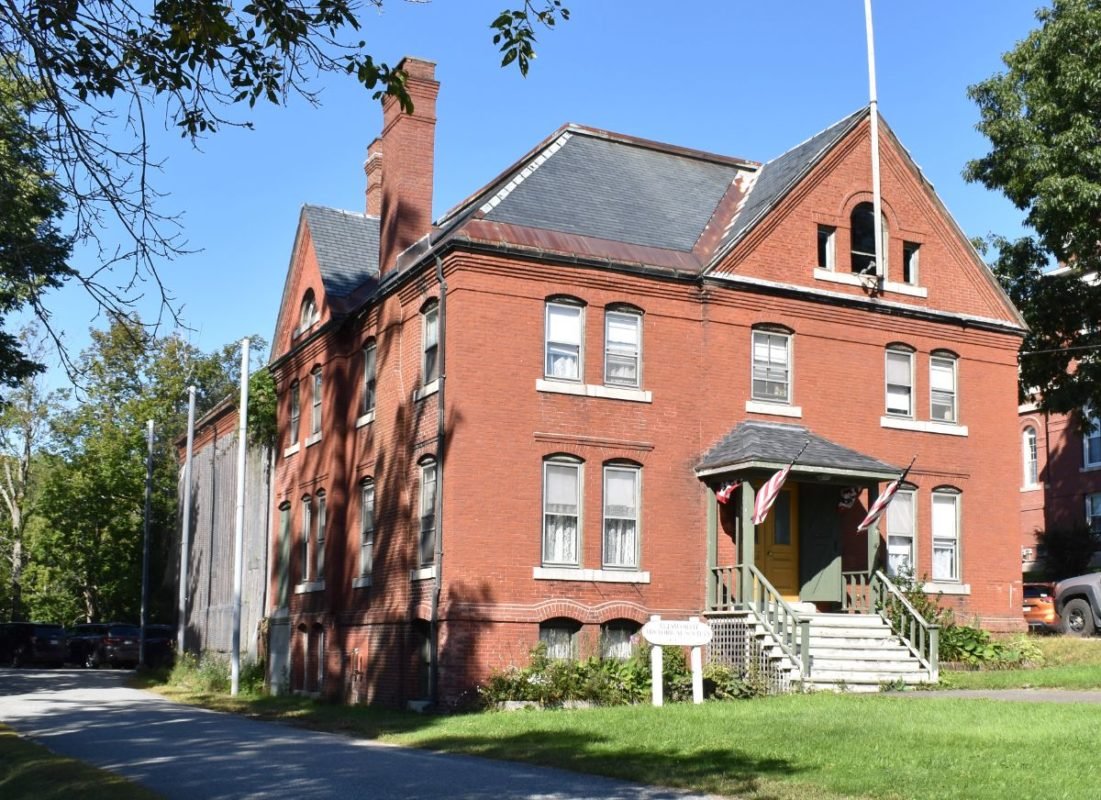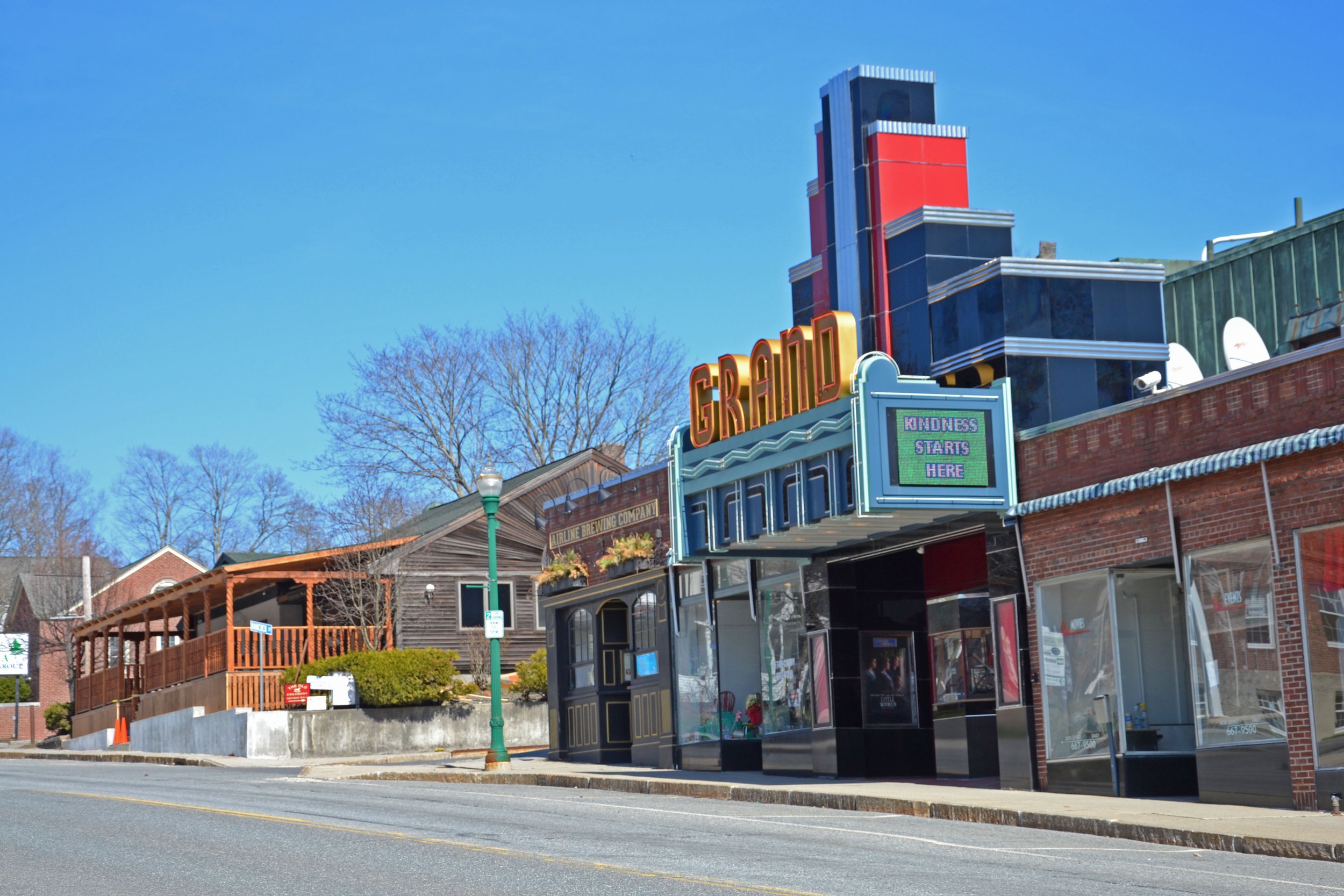Heart of Ellsworth Loses Federally-Funded Grant
Please support our work with a donation amount of your choosing. We appreciate your support!
On Friday, 5/9/2025, Heart of Ellsworth unexpectedly lost its $30,000 federally-funded grant, but we're moving forward - with your help! This designation will bring critical support for preserving our historic buildings and keeping our downtown vibrant. Your donation helps us keep this important work on track.
Heart of Ellsworth is leading an initiative to nominate Downtown Ellsworth as a National Register of Historic Places Historic District. This project builds on a 2023 reconnaissance survey and aims to preserve and protect the historic and architectural character of the district while fostering economic and cultural growth.
The designated area includes approximately 47 properties across 6.5 acres on Main Street, State Street, Water Street, and portions of Franklin and Hancock Streets.
With your help, we can protect Ellsworth's historic character!
A huge thank you to First National Bank for supporting this initiative!
Project Goals
Obtain National Register designation to enhance preservation efforts and access funding opportunities.
Engage the local community in historic preservation education and decision-making.
Document and assess historic properties for significance and eligibility.
Promote sustainable revitalization of Downtown Ellsworth through preservation incentives.
Celebrate and publicize Ellsworth’s historic character upon designation.
key project steps:
Heart of Ellsworth has already formed a project committee including members from the Ellsworth Historical Society, and experts in Architecture and Urban Design. An RFP was released in early 2025 which resulted in the selection of Kleinfelder Inc., an engineering, construction management, design and environmental professional services firm based in Maine, to lead the nomination submission process.
The following work remains to be done on the project:
Field Work & Research
Conduct on-site property assessments and photographic documentation.
Perform archival research and oral history interviews to gather historical context.
Engage with Maine Historic Preservation Commission (MHPC) to finalize district boundaries.
Draft Preparation & Reviews
Submit a first draft nomination for review by MHPC.
Incorporate feedback and submit a revised second draft.
Finalization & Submission
Conduct a final review with MHPC before submission.
Submit the nomination to the National Park Service (NPS) for designation approval.
Public Engagement & Documentation
Organize community workshops to educate and involve the public.
Promote the designation through public announcements and events.
Develop marketing materials highlighting the historic district’s significance.
Historic Preservation
Ellsworth’s downtowns exude historic character and charm with their stunning architecture, historic landmarks, and long-standing local businesses. Do you know that Ellsworth has multiple historic buildings listed on the National Register but still has yet to achieve its nationally designated historic district? Between the Grand Auditorium and the Old Hancock County Sherriff’s Home and Jail, the City Hall, and the Ellsworth Public Library, our cultural history is at the forefront of our identity. By preserving and protecting significant historic properties, we protect the historic character of our community.
Pictured from left to right: Matt Wagner from Maine Street America, Cara Romano, Executive Director of Heart of Ellsworth, and Jen Sala, President of Ellsworth Historical Society, stand in front of the historic Old Hancock County Jail in the downtown district.
Heart of Ellsworth supported the Ellsworth Historical Society in applying for the RevitalizeME Grant program to restore and maintain the “old jail.” We’re so proud of the Ellsworth Historical Society for receiving the RevitalizeME Grant and for putting in the work to preserve such a big piece of Ellsworth’s history!
Heart of Ellsworth is an affiliate community of Main Street America, a program developed by the National Trust for Historic Preservation. A cornerstone of our mission is to plan for the future of Ellsworth’s historic downtown. Together with our local partners, Nate Holyoke Builders, Ellsworth Historical Society, City of Ellsworth, and our state and nationwide partners, Maine Downtown Center, Maine Preservation, Maine Historic Preservation Commission, National Trust for Historic Preservation, and Main Street America, we work to preserve and protect the historic and cultural assets of our city. Learn more about these organizations by clicking the logos below.
Historical Preservation workshop series
The community is planning for the future of Ellsworth’s historic downtown and learning how we can collectively preserve our heritage!
With support from the National Trust for Historic Preservation’s Hart Family Fund and Nate Holyoke Builders, we hosted three workshops on historic preservation for those who wanted to learn more about protecting Ellsworth’s oldest and most unique buildings while rehabilitating and preserving them for generations to come. Brad Miller, Preservation Manager with statewide non-profit, Maine Preservation, discussed the fundamentals of preservation, how to fund your preservation project, and how to make old places feel new again. Read Brad’s bio below.
Foundations of Preservation
March 28th, 5:30 pm – 7:00 pm, Ellsworth Public Library
From the castles and cathedrals of Europe to the historic districts of Charleston, learn about the origins of the historic preservation field and discover how it can play a powerful part in shaping your community’s future. Together we explored how to identify, recognize, and support the buildings and places that make Ellsworth a special city to live, work, and visit.
Did you miss the workshop? Not to worry! Learn more about local designation, what the national register does and doesn’t affect, and how to get started by downloading the workshop handout.
Funding your Preservation Project
(60 min) April 11th, 5:30 pm – 6:30 pm, Ellsworth Public Library
Whether you are a small business owner, nonprofit organization, or real estate developer, rehabilitating your historic building requires a sustainable use, a workable business plan, and financial resources to do the job right. Workshop attendees learned about historic rehabilitation tax credits, capital improvement grant programs, and other strategies for a successful preservation project.
For-profit ventures and non-profit or government entities fund historical preservation differently. These helpful workshop handouts can walk you through the correct process.
Making Old Places New Again
(60 min) April 25th, 5:30 pm – 6:30 pm, Ellsworth Public Library
While old buildings have literally stood the test of time, many require alterations and improvements to meet contemporary needs (and code!). This session provided an overview of straightforward rehabilitation activities like repointing brick walls and restoring windows, as well as the integration of new systems to meet economic and climate resilience goals.
Learn the 8 tenets of rehabilitation and more in this workshop session’s handout.
About the speaker
Brad Miller is the Preservation Manager with the statewide, nonprofit Maine Preservation. In his role, Brad advocates for historic preservation as a tool for cultural and economic development. He manages the organization’s grant-making efforts, easement portfolio, and public programming, including Maine’s Most Endangered Historic Places List and Honor Awards.
Prior to joining Maine Preservation, he worked with Indiana Landmarks, the country’s largest statewide, historic preservation non-profit organization, the Somerville, Massachusetts, Historic Preservation Commission, and the Tennessee Civil War National Heritage Area. He has served on the Board of Directors of the Calumet Heritage Partnership, Indiana Lincoln Highway Association, and was the Cultural Resources Advisory Board Member for the Indiana Lake Michigan Coastal Program.
Brad holds a B.A. in History from Gettysburg College and a M.A. in Public History from Middle Tennessee State University, where he focused his studies on historic preservation and African American history. When he’s not busy looking at old buildings, he enjoys hiking, ultimate frisbee, and sampling locally roasted coffee.
FAQs
What is historic preservation?
Historic preservation is the practice of protecting and restoring buildings, sites, and objects of historical significance to maintain their cultural and architectural heritage. It aims to safeguard tangible reminders of the past for future generations. For Main Street businesses, historic preservation is vital as it fosters a sense of place, attracts tourists, enhances the area's aesthetic appeal and boosts the local economy.
Historic buildings can often serve as focal points for economic revitalization, drawing in visitors who appreciate their authenticity and charm. Additionally, preserving historic architecture can contribute to a unique identity for Main Street district businesses, distinguishing them from modern development.
What are some buildings of historic significance in Downtown Ellsworth?
Ellsworth is currently home to 12 nationally-designated buildings including downtown cornerstones like the Old Hancock County Sheriff’s Home and Jail, Ellsworth’s City Hall, and The Grand Theater. To learn more about Ellsworth’s most historic places, contact the Ellsworth Historic Society.
Is my building historic?
There are many ways to define “historic,” including official designations through local, state, and federal entities. The National Register of Historic Places is a federal designation with a specific criteria for what constitutes a place as “historic.” A common qualification is that the place has to be at least 50 years old.
To learn whether your property is included, visit the National Register of Historic Places. Visit their website to find out if your building is among those locally designated in Ellsworth.
Other times, buildings and sites do not fit within these formal definitions but are an important part of Ellsworth’s heritage or landscape. These are places worth celebrating, too!
Is there money to help repair my old building?
Grants and other financial incentives for preserving and rehabilitating historic buildings depend on the building, its historic designation, the owner, and how it is used. Generally, grants are reserved for nonprofit organizations and local governments. Maine Preservation is a great resource for more information about grants. Historic buildings that are used for income-producing purposes, like restaurants, offices, or apartments, and are also listed on the National Register of Historic Places may be eligible for state and federal rehabilitation tax credits to support repairs and upgrades. The Maine Historic Preservation Commission administers this program and has more information here. There are no financial incentives for historic tax credits in downtown Ellsworth until there is a nationally designated historic district.
Which Ellsworth historic property was listed in Maine Preservation's 2023 Most Endangered Historic Places, aimed at boosting local preservation and garnering positive media for statewide conservation efforts?
D'Amandas! Click here to read the full story and learn the importance of list inclusion.
Does historic preservation make projects more expensive?
While it's true that some preservation projects can be costly, neglecting historic buildings often leads to more significant expenses down the line. Additionally, preservation can offer economic benefits through heritage tourism, tax incentives, and increased property values.
Historic preservation is about more than dusting off old buildings for today. It’s about renewing economic and cultural opportunities for residents, entrepreneurs, and tourists young and old. Take a look at D’Amanda’s, Ellsworth’s Candlepin Bowling Alley, and the storied dedication of its owner, Autumn Mowery, to preserve the lanes and protect the sport of candlepin. Historic preservation is about making artifacts of our past whole for curious and resourceful future generations living in and visiting Ellsworth, Maine.



